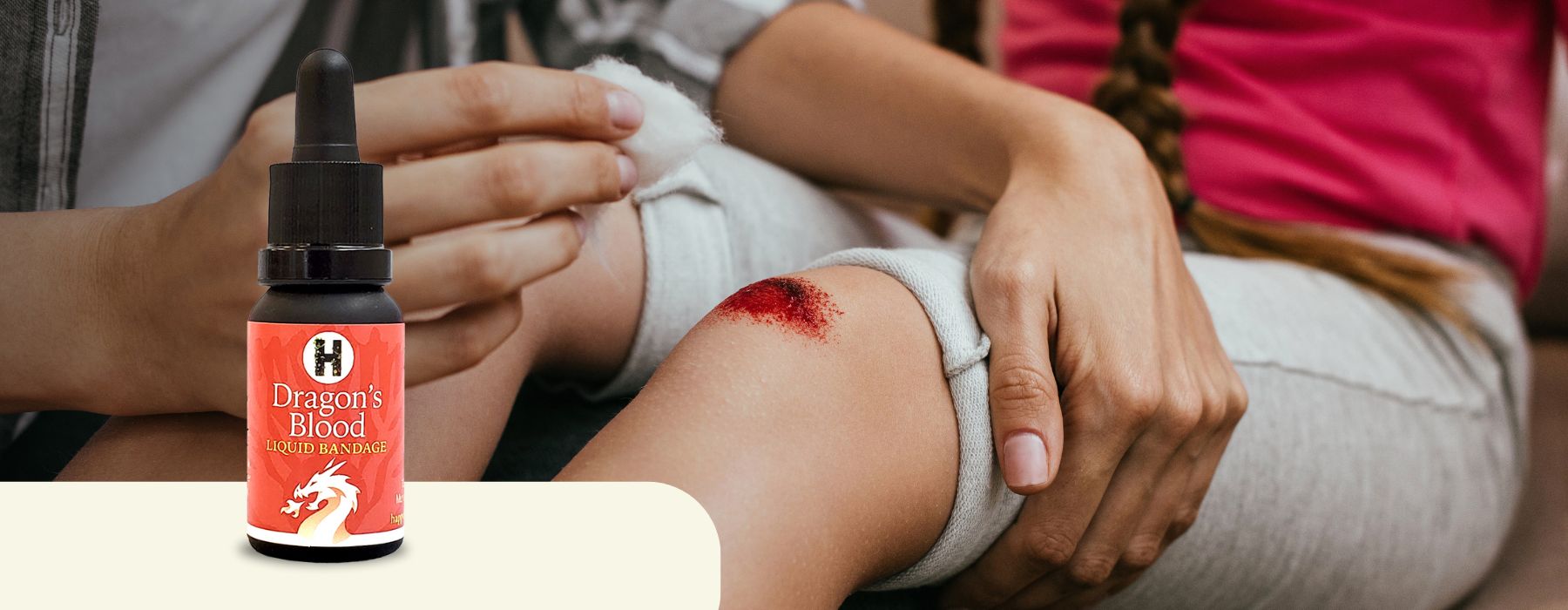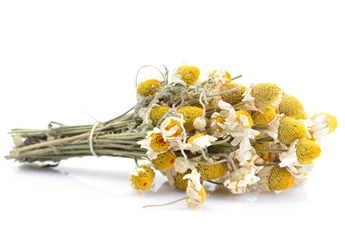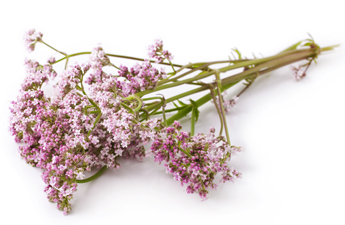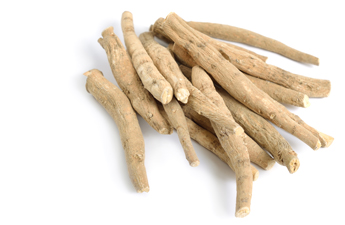There are so many herbal preparations that can be useful as first aid remedies. If you’re new to using herbs for first aid, I recommend picking a few easy remedies to get started and slowly build up your kit until you have everything you need. As you build your kit, you can familiarise yourself with each herb, its actions and properties and how to best use each of your remedies. Soon, you’ll have a useful and versatile ready-to-go herbal first aid kit at home and you’ll be prepared for all the minor accidents and illnesses that life throws your way.

By Tamara Welsh, Happy Herbalist

Dragons blood tincture
The resin known as Dragon’s blood (Sangre de Grado) is a useful herbal tincture to have on hand in any first aid kid. Resins have wonderful antiseptic properties making them a versitile first aid kit remedy. Dragon’s blood tincture can be placed directly on small cuts and wounds to prevent or help treat infection. The tincture can also be used as a mouthwash or throat gargle or applied directly to an infected tooth as a potent antimicrobial agent. Dragon’s blood is a great option for hikers to take in their packs to be used as a liquid bandage.

Herbal Styptic Powder
Styptic powders are used on small cuts, wounds and ulcers to stem bleeding and promote healing. Placed directly onto a wound, a styptic powder will promote the formation of a scab so that healing can begin. Astringent herbs tend to have styptic properties due to their ability to dry up mucous membranes. These are herbs such as Yarrow, Horsetail and Witch Hazel. To make a styptic herbal powder all you need to do is ground down your herb(s) of choice into a fine powder and store in a steralised jar ready for use. To use, clean the wound well if necessary and then place a pinch of powder directly onto the wound to stop bleeding. Cover the wound if you like. Styptic powders are also great for minor shaving cuts. The powder can simply be dusted off once bleeding has stopped.
SEE BELOW for instructional video!

Slippery elm powder
The dried inner bark of the tree Ulmus rubra, known as Slippery elm powder, is another wonderful herb for the home. Slippery elm contains mucilage, a chemical constituent that creates a viscous solution that soothes mucous membranes. This soothing action makes Slippery elm useful for sore throats, peptic ulcers or diverticulitis. Mixed with water, Slippery elm is a remedy for both constipation and diarrhoea as it helps bulk stool and soothe the GIT as well as feeding the beneficial flora in the gut. Interestingly, you can also use Slippery elm topically to help soothe inflammation for things like burns and chilblains. It also works well topically as a drawing agent for boils and abscesses.

Mullein oil
Similar to Slippery Elm, the mucilage in Mullein makes it a soothing herb to the surfaces it touches. Mullein infused oil is a great first aid remedy for all conditions of the ears such as earache, blocked ears, eczema of the ear and tinnitus. A few warms drops of the oil can be placed in the ear for relief. For more information on how to make herbal infused oils head here.

Calendula eye wash
Any home herbal first aid kit should contain dried Calendula flowers, or preparations made from Calendula. Calendula is a healing herb with vulnerary, antimicrobial, antifungal and anti-inflammatory actions. Dried Calendula flowers can be steeped in water and used as a wash for any sore and irritated skin condition such as nappy rash, burns, slow healing wounds, eczema and insect bites. In particular, Calendula makes a great eye wash for sore, dry or infected eyes. Simply steep the dried Calendula blooms in boiling water. Once luke warm, steep and use the liquid in an eye bath to rinse out the eyes.
Propolis
Made by bees from resins collected from trees, this liquid extract has many of the same properties as Dragon’s Blood – you can use it as a liquid bandage on cuts and wounds to stop bleeding, seal the skin, treat infection and promote healing. You can use it as a gargle for sore throats, or use a few drops on a sore tooth or infected gums.
Activated Charcoal
This powder is an excellent addition to your first aid kit. You can add 1 tsp to a cup of water, and drink for gastrointestinal infections, diarrhoea or food poisoning. It absorbs toxins and pathogens from the digestive tract and helps move them out of the body. Just make sure to drink plenty of water, as it can be dehydrating due to its super absorbent properties!
Rescue+
Another great addition to your kit which is invaluable to have on hand in times of stress, injury or shock. This homeopathic preparation is a unique combination of the classic English Bach Flower ‘Rescue Remedy’ and the Australian Bush Flower Essence equivalent, ‘Emergency Essence’.
Also by The Happy Herbalist
Discover the JOY of DAMIANA: Our favourite Happy Herb!







 Nextwave
Nextwave

